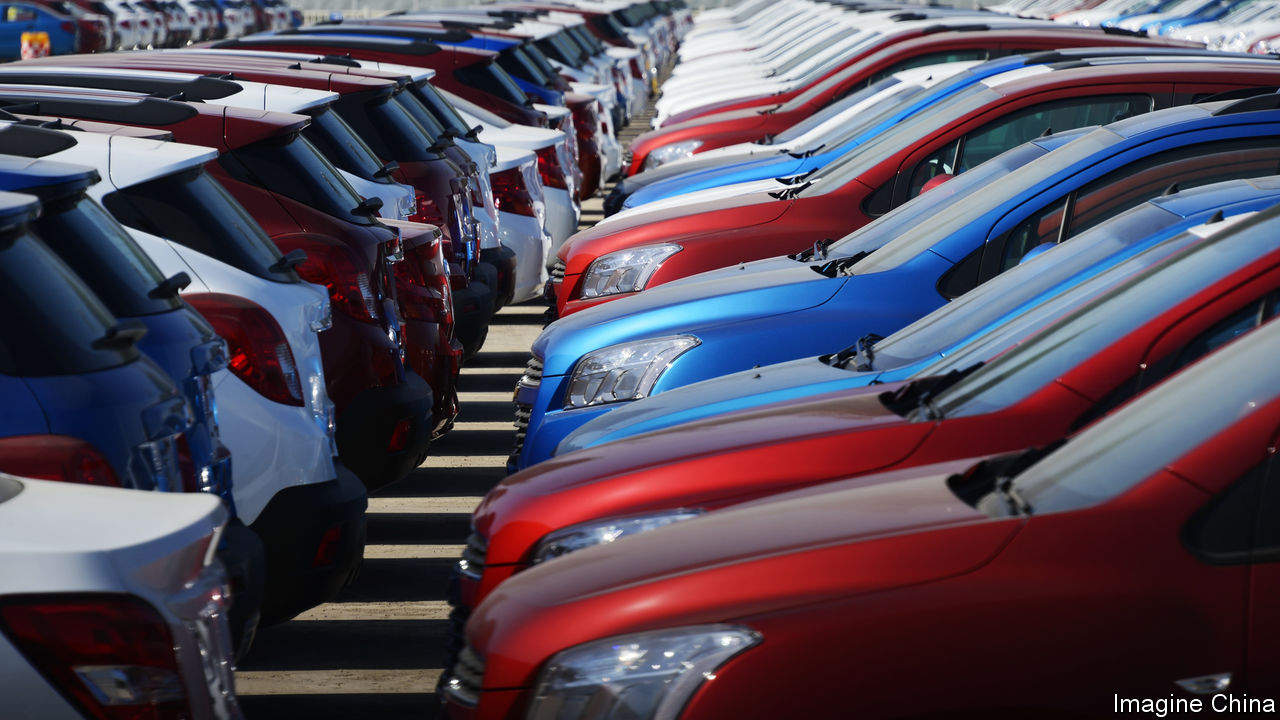
FOR now, at least, when speaking of the trade dispute with America, China’s government is taking a more-in-sorrow-than-in-anger tone. That helps explain the Chinese public’s surprisingly measured views of Donald Trump, and gives the Chinese government some breathing room to consider its options.
The state media have so far taken the high ground. True, the Global Times, a chest-thumping tabloid, accused the American president of “gambling” that China will be cowed by his “capricious and obstinate attitude”. No country can isolate itself from globalisation, said the Xinhua news agency: “The wise man builds bridges, the fool builds walls.” A new Xinhua web page popped up on June 20th, tracking multilateral deals that Mr Trump has quit, including on trade, climate change and Iranian nuclear arms.
-
What does it mean to be Métis?
-
Retail sales, producer prices, wages and exchange rates
-
Foreign reserves
-
Why tipping in America is up for debate
-
America’s trade spats are rattling markets
-
Donald Trump signs an executive order to stop family separations
But China has yet to debate, publicly, how to handle an American president who is an avowed populist and won office by playing on the fears and grievances of workers in such places as the midwestern rustbelt, handing him an America First mandate to reshape global trade. China is uncomfortable with discussions of democratic mandates, voter grievances or elections that overthrow establishments.
The results can be heard in a straw poll of factory workers in the eastern city of Yantai, who will be among the first to suffer from the American tariffs planned for July 6th. Yantai is home to a car factory owned by SAIC-General Motors, a joint venture that makes the only Chinese-built car to be sold in America in significant numbers. The Dong Yue car plant produces the Buick Envision, a faintly dowdy four-wheel drive exported to America since 2016, and which will cost about $8,000 more once tariffs bite. American drivers bought 41,000 Envisions last year.
On a muggy morning this week, the news had reached workers wheeling mopeds and electric bicycles through a side gate as they headed home. Kong Xiangbao, a machinery repairman, fretted that his salary could suffer if fewer cars are made for export. Li Tongxiao admitted to rather liking Mr Trump, citing his “charisma”, wealth and success before entering politics. Mr Li takes comfort in the domestic success of Buick in China, where drivers looking for a practical, upper-middle-range car last year snapped up more than 200,000 Envisions. GM sells more cars in China than in America, and this—along with years of watching news broadcasts that present world affairs as formulaic meetings between powerful men—has engendered fatalism. “The American market, though it isn’t small, isn’t big either. Besides, this is an issue between two countries. Even if I were worried, there is nothing I can do about it,” Mr Li shrugged.
Qu Yang, a salesman at a Buick showroom in Yantai, is puzzled by the very idea that an unusual, outsider president might be the cause of tensions. “The American president and the American government, for Chinese people it’s one and the same,” he says. Sales of Japanese cars suffered in previous spats. He hopes a trade dispute with America will have less impact than the “historical feud” with Japan.
In 2012 jingoistic reports and online debates about islands claimed by both Japan and China prompted nationalists to attack Japanese noodle shops, rip flags and damage Japanese cars before authorities clamped down. More recently, a South Korean supermarket chain was, in effect, kicked out by official harassment and a consumer boycott, because of a row over American anti-missile defences in South Korea. But so far state media and official spokesmen have avoided the slogans that often prefigure outbreaks of public rage—the charge, say, that a foreign power has hurt the feelings of the Chinese people.
One reason is the need to preserve the prestige of Communist leaders. State media presents President Xi Jinping as a confident and hospitable patriarch, more than capable of handling men like Mr Trump. And, notes William Zarit, the chairman of the American Chamber of Commerce (AmCham) in Beijing, signs of softening in the Chinese economy mean “this is not a good time for a trade war.” He sympathises with American officials’ loss of patience with Chinese moves to skew markets in their favour, notably through unfair enforcement of regulations. The most recent AmCham survey of business sentiment found most of its members reporting rising revenues and healthy profits, but 75% also saying that foreign companies have become less welcome in China. Mr Zarit voices concerns that America “could paint China into a corner, and not adequately consider Chinese domestic politics”.
Western businesses and diplomats in China long to see the country reach a new grand bargain between its model of assertive state capitalism and the more market-driven Western model. Team Trump’s attacks on forced technology transfers and state subsidies are broadly welcomed. But businesses and allied governments want Mr Trump to pick the right fights. It is one thing to ask China to behave differently. It is another to ask it to stop climbing up the industrial value chain, with such policies as the “Made in China 2025” plan.
That would smack of containment, which does stir Chinese public opinion, even at the gates of a plant making American cars on the shores of the Yellow Sea, 6,700 miles from Detroit. Americans are “fearful of China’s development”, says Mr Kong, the machinery repairman. “They worry it will affect America’s dominant status.” Plenty of Trump voters would agree. Therein lies trouble.
Source: economist
China considers its response to Donald Trump’s proposed tariffs